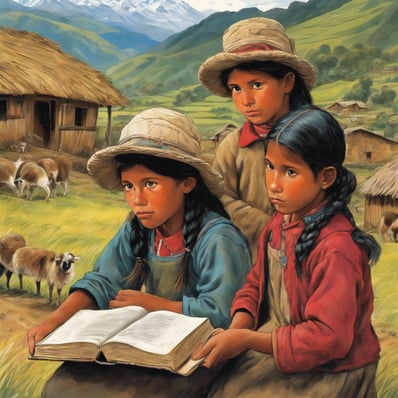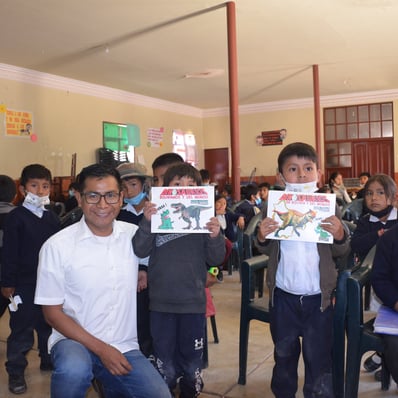Education and Reading: A Human Right in Action
On International Human Rights Day, the Kreskanta Foundation highlights the promotion of education and reading in remote communities in Bolivia, fostering equality and sustainability, with access to knowledge as a transformative universal right.
12/11/20242 min read
International Human Rights Day: Education and Reading as Bridges to Equality
Every 10th of December, the world commemorates International Human Rights Day, a date that invites us to reflect on the importance of ensuring that all people enjoy the fundamental rights that belong to them equally, without any distinction. In this context, education and access to reading play a crucial role in promoting equality and development in all societies.
Education is an essential human right and a powerful tool to break the cycles of poverty and exclusion. However, in many remote regions, such as rural and hard-to-reach communities, this right faces significant barriers. Limited infrastructure, scarce educational resources and a lack of trained teaching staff are just some of the challenges that restrict access to quality education in these places.
One of the most important aspects of education is the promotion of reading, as it fosters critical thinking, creativity and access to new ideas and knowledge. However, in remote areas, books, reading materials and libraries are a luxury, rather than a tool accessible to all. This perpetuates inequality and deprives entire generations of the opportunity to dream, learn and build a better future.
Education and Reading as Tools for Social Justice
Inclusive education and access to reading must be fundamental pillars in the human rights agenda. Sustainable initiatives that address these gaps are essential to ensure that children, youth and adults in remote communities have the same opportunities as those in urban areas.
Mobile library programs, book donations and digital platforms adapted to rural contexts are some strategies that have proven to be effective. These initiatives allow education to reach forgotten corners, empowering communities with knowledge and skills. In doing so, not only is access to a basic right guaranteed, but it also contributes to strengthening values such as equality, respect and solidarity.
The Role of Organizations and the Community
Collaboration between public institutions, non-governmental organizations and local communities is key to bringing education and reading to where they are most needed. Inspiring examples of this effort include foundations working to implement community libraries, distribute educational materials and train teachers in innovative pedagogies.
Communities also play a fundamental role in the success of these initiatives. Their active participation, coupled with the knowledge they have of their own needs and contexts, ensures that the solutions implemented are relevant and sustainable.
Towards an Equitable Future
On this International Human Rights Day, let us reaffirm our commitment to education as an inalienable human right. Let us make reading and learning an accessible tool for all, especially for those who face the greatest barriers.
Only through a joint effort will we be able to close the gaps and ensure that no child, youth or adult is left behind simply because they live in a remote place. To educate is to transform, and reading is the first step towards a more equitable and fair world for all.


